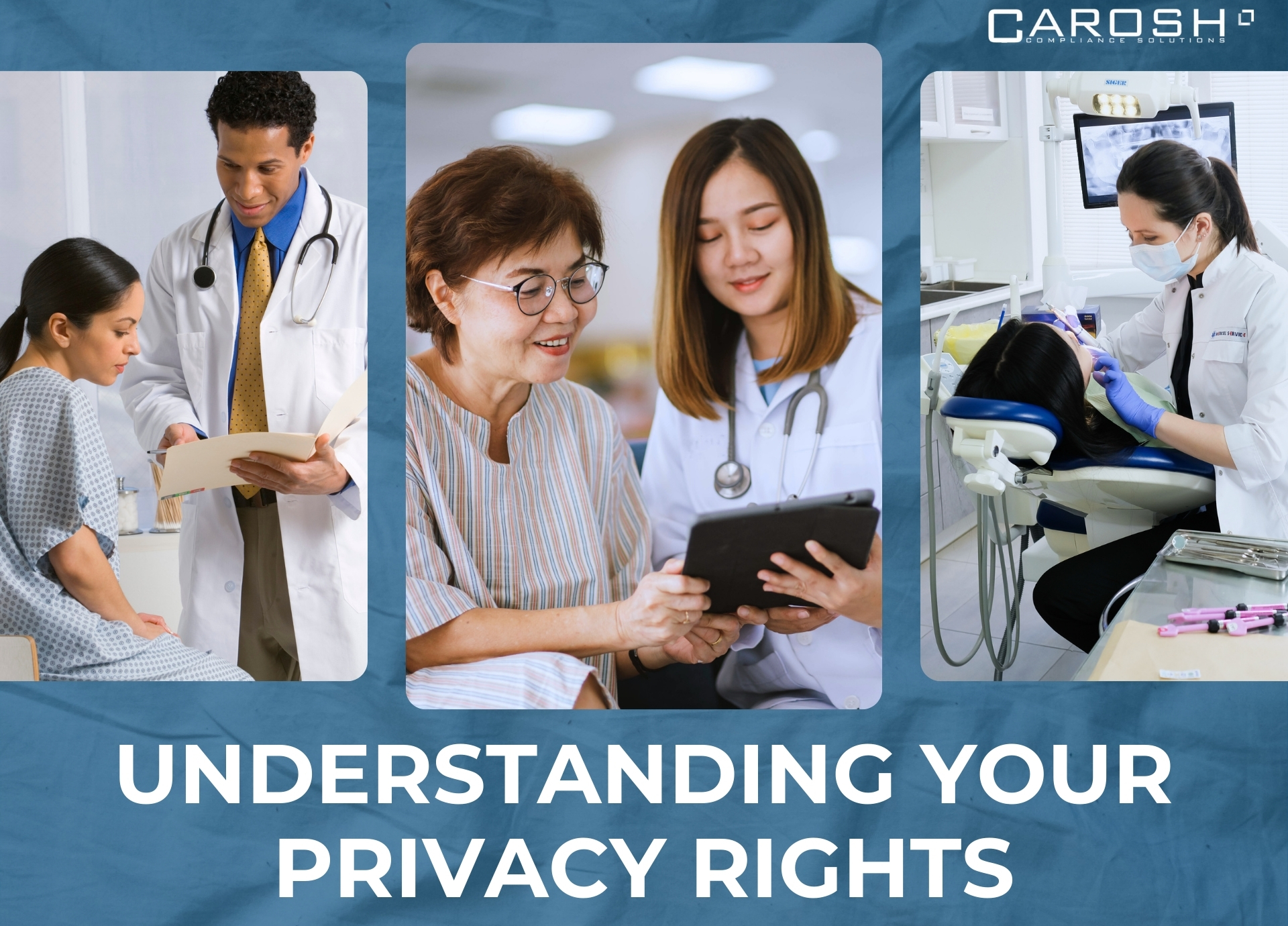
Table of Contents
In the realm of healthcare, protecting patient privacy is paramount. The Health Insurance Portability and Accountability Act (HIPAA) of 1996 introduced the Notice of Privacy Practices (NPP), a pivotal document designed to safeguard Protected Health Information (PHI). This guide delves into the essence of the NPP, elucidating its purpose, content, and the obligations it places on healthcare providers and patients alike. Whether you’re a patient seeking to understand your privacy rights or a healthcare professional aiming for compliance, this comprehensive overview sheds light on aspects of the NPP under HIPAA.
Purpose and Content
Informing Patients about Privacy Rights
The NPP is pivotal in ensuring that patients are fully informed about their rights concerning their health information. This encompasses an explanation of the patient’s ability to access and control their PHI, including the right to inspect and obtain a copy of their health records, request amendments to their health information, and understand their rights to privacy and confidentiality as guaranteed by HIPAA.

Use and Disclosure of Health Information
A significant section of the NPP is dedicated to elucidating how a covered entity may use and disclose PHI for treatment purposes, such as consultations between healthcare providers, payment activities including billing and claims management, and healthcare operations, which encompass quality assessment and improvement activities, training programs, accreditation, certification, licensing or credentialing activities, and more. This section aims to clarify the legal and operational framework within which PHI can be shared without explicit patient consent, providing examples to enhance understanding.
Additionally, the NPP outlines situations where the use and disclosure of PHI will require patient authorization. These include instances not directly related to treatment, payment, or healthcare operations, such as certain marketing activities, the sale of PHI, and most uses and disclosures of psychotherapy notes. The document must clearly specify the process for patients to authorize these types of uses and disclosures, including how they may revoke such authorization.
Patient Rights
Beyond the uses and disclosures of PHI, the NPP must detail the rights granted to patients over their health information. This includes the right to request restrictions on certain uses or disclosures of PHI, even for treatment, payment, or healthcare operations, the right to receive communications of PHI by alternative means or at alternative locations, and the right to receive an accounting of disclosures of their PHI made by the covered entity.
The NPP should also inform patients of their right to receive a paper copy of the notice upon request, even if they have agreed to receive the notice electronically. This ensures that all patients, regardless of their access to digital technology, can be informed of their privacy rights.
Covered Entity’s Duties
The document is required to articulate the covered entity‘s commitment to protect the privacy of health information, outlining the legal duties and privacy practices concerning PHI. This includes the entity’s obligation to notify affected individuals following a breach of unsecured PHI, maintain the privacy of information as outlined in the NPP, and not use or disclose PHI beyond the descriptions provided in the notice unless the patient authorizes it in writing.
Complaints
An essential component of the NPP is the inclusion of a section on how patients can file a complaint with the covered entity or the U.S. Department of Health and Human Services if they believe their privacy rights have been violated. This section must provide clear instructions and contact information for lodging complaints, underscoring the entity’s openness to feedback and commitment to privacy.
Contact Information and Effective Date
Finally, the NPP must include the contact information of a person or office to contact for further information about the entity’s privacy practices. This ensures that patients have a resource for any questions or concerns they may have. Additionally, the notice must state the effective date of the notice, indicating when the outlined practices and protections came into effect.
The Notice of Privacy Practices is a document mandated by HIPAA to ensure that patients are well-informed about their privacy rights and the conditions under which their PHI can be used and shared. By covering the key areas of uses and disclosures, patient rights, the covered entity’s duties, procedures for filing complaints, and providing essential contact information and the effective date, the NPP plays a vital role in fostering transparency, trust, and compliance in the healthcare system.
Distribution Requirements
Empowering Transparency and Trust in Healthcare
The Notice of Privacy Practices (NPP) is a key document in healthcare that informs patients about their privacy rights and how their Protected Health Information (PHI) can be used and shared by their care providers. Its main goal is to create transparency and trust, making the complex world of health information privacy understandable for patients.

How PHI is Used and Shared
The NPP clearly outlines when a covered entity can use and share PHI for essential activities without needing the patient’s prior consent. This includes sharing PHI among healthcare providers for diagnosis, treatment, and care coordination, ensuring specialists can access a patient’s medical history for a thorough evaluation. It also explains how PHI is used for payment processes and essential healthcare operations like quality assessments, staff evaluations, training, and other business activities.
Beyond Standard Operations
The NPP also addresses situations where PHI might be shared for non-standard purposes, which would require the patient’s explicit authorization. This includes uses in marketing, research, or sharing with third parties not directly involved in the patient’s care.
Empowering Patient Rights
A critical aspect of the NPP is its emphasis on patient rights regarding their PHI. It grants patients the right to access, review, and obtain copies of their health records, ensuring they are fully informed about their health status and care. Patients can request corrections to their records to maintain the accuracy of their care and decision-making processes.
Requesting Restrictions
Patients can ask for restrictions on certain uses or disclosures of their PHI. Although not all requests may be granted, this provision allows patients to express how they prefer their information to be shared. Additionally, patients have the right to receive a report of certain disclosures of their PHI, providing a transparent overview of how their information is used beyond treatment, payment, and healthcare operations.
NPP: A Vital Educational Resource
In summary, the NPP serves as an essential guide, educating patients on how their PHI is managed and detailing their rights and how to exercise them. By understanding the NPP, patients can take active steps in managing their privacy and ensuring their health information is used in ways that match their preferences and needs.
Updates and Revisions
Major Changes and the Need for Redistribution
When a covered entity makes significant changes to its privacy practices, it must update its Notice of Privacy Practices (NPP) to accurately reflect these changes. After updating the NPP, the entity must also distribute the revised notice according to the established guidelines. This step is crucial to keep patients informed about how their Protected Health Information (PHI) may be used and disclosed under the new privacy practices.
Handling Minor Changes
For minor changes that do not significantly impact the use or disclosure of PHI, the covered entity is not required to redistribute the NPP to all patients immediately. However, the entity must still make the updated notice available to anyone who asks for it. The revised NPP should also be posted in easily accessible locations for patients, such as in the provider’s office or on their official website. This ensures transparency around even the smallest adjustments to privacy practices, allowing patients to remain informed about the safeguards for their health information.
Compliance and Enforcement
The Office for Civil Rights (OCR) is tasked with ensuring adherence to the HIPAA Privacy Rule, which encompasses the mandates regarding the Notice of Privacy Practices. When covered entities fail to meet these requirements, the OCR has the authority to take enforcement actions. These actions may include imposing monetary penalties on those entities that do not comply with the stipulations set forth by HIPAA, specifically in relation to how they inform patients about their privacy rights and the handling of their Protected Health Information. This system of compliance and enforcement is needed to maintain the integrity of patient privacy and the trust between healthcare providers and their patients.
The Notice of Privacy Practices stands as a cornerstone of patient privacy protection under HIPAA. By detailing how PHI is used, disclosing patient rights, and outlining the obligations of covered entities, the NPP plays a crucial role in maintaining the integrity of patient-provider relationships. Understanding the NPP is essential for both patients and healthcare professionals, ensuring informed consent and adherence to privacy regulations. As healthcare continues to evolve, the principles enshrined in the NPP remain fundamental to protecting patient privacy and fostering an environment of trust and respect in healthcare settings.
Q & A
Q: Why is the NPP important for patients?
A: The NPP empowers patients by informing them of their privacy rights and how their health information is handled, ensuring transparency and fostering trust between patients and healthcare providers.
Q: How often are healthcare providers required to distribute the NPP?
A: Healthcare providers must provide the NPP to patients at the first service encounter and make it readily available upon request. For health plans, it’s distributed to new enrollees at the start of enrollment and upon significant changes to the privacy practices.
Q: What should a patient do if they believe their privacy rights have been violated?
A: Patients can file a complaint with the covered entity or directly with the U.S. Department of Health and Human Services (HHS) Office for Civil Rights (OCR) if they believe their privacy rights have been violated.
Q: Are there any circumstances under which a healthcare provider can use or disclose PHI without patient consent?
A: Yes, the NPP must detail circumstances under which PHI can be used and disclosed for treatment, payment, and healthcare operations without the patient’s prior consent.




